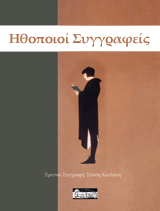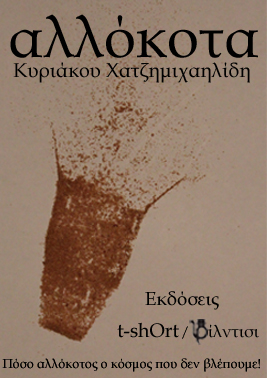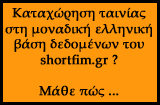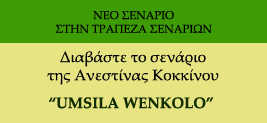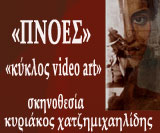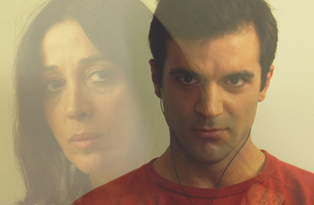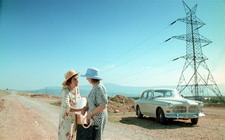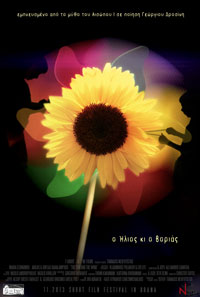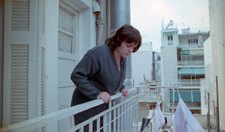

The Sun and the Wind
Script
DIRECTOR'S NOTES
Á fiction movie, using non-narrative elements, hoping to constitute a sensory experience for the viewer. Based on the homonym Aesop’s myth, the movie visualizes nature’s elements and simultaneously maintains the allegorical nature of the myth. In order to achieve that, besides the main character, the other protagonists are the scenery, the lighting and several effects (such as duplication effects etc). Other means, that are used to achieve the movie’s intentions, is the recitation of George Drosinis poem “The Sun and the Wind” by two children that personify these elements and the quotation of the poem via subtitles.
SYNOPSIS OF THE MYTH
In this particular myth Aesop uses as his characters, two of nature’s elements, the sun and the wind. The two of them are arguing about who is stronger. Then a man comes along. His only mission is to be used as a proof of superiority when they decide that the criterion for who is stronger will be the undressing of the man. Each one attempts with his means. The first one to try is the wind. He blows with all his strength but his efforts are fruitless. He only manages to force the man to cover up more with his clothes in order to protect himself from the cold. Trying next is the sun. He covers the man with light and warmth and manages to obtain the target, winning the battle. Aesop is building an ambiguous myth. In a first level he juxtaposes the elements of the nature and the man. This way he emphasizes on the smallness of the man compared to the grandeur of the nature. In a second level he contrasts the good with the bad, the violence with the serenity coming to a conclusion that the virtuous and peaceful path is the most effective.
POEM
George Drosinis (1858-1951) was a Greek poet, litterateur and journalist. He is considered as one of the pioneers of the renewing New Athenian School in poetry and Ethography in prose. His first poetry collection «Istoi Arachnis» (spider’s web) marked its appearance. Inspired by Aesop’s fable he wrote the poem “The Sun snd The Wind” that was published in his book Pedika Paramithia (children’s tales) (1889).
THE WIND AND THE SUN
The Wind was angry
he quarrelled with the Sun.
The Wind claimed:
"I' m stronger!"
The Sun replied:
"I outdo you in strength!"
An old farmer
in a black cloak
was heading to his farm.
The Wind spoke:
"He who has the power
will quit the old man's cloak."
He huffed and he puffed,
he blew with all his might;
his effort was vain.
The old man grew cold
wrapping himself tighter
in his thick black cloak.
Then the Sun said:
"He who has the power
will quit the old man's cloak."
He shone in all his glory
Dissipating kindness,
so the old man took
his thick cloak off.
He spoke once more:
"Hear and learn,
I am stronger than you are,
because you use malevolence,
whereas I use amenity".



